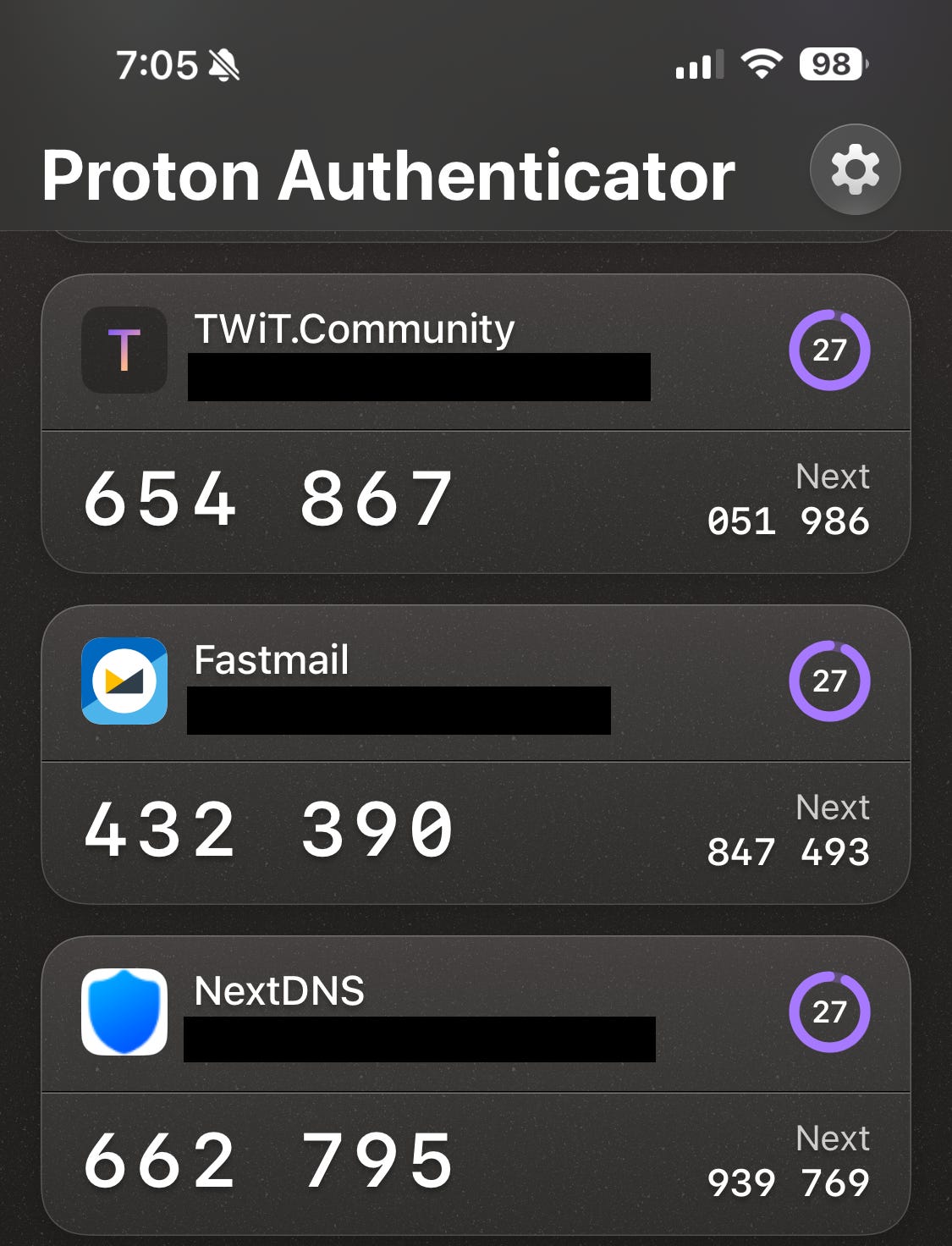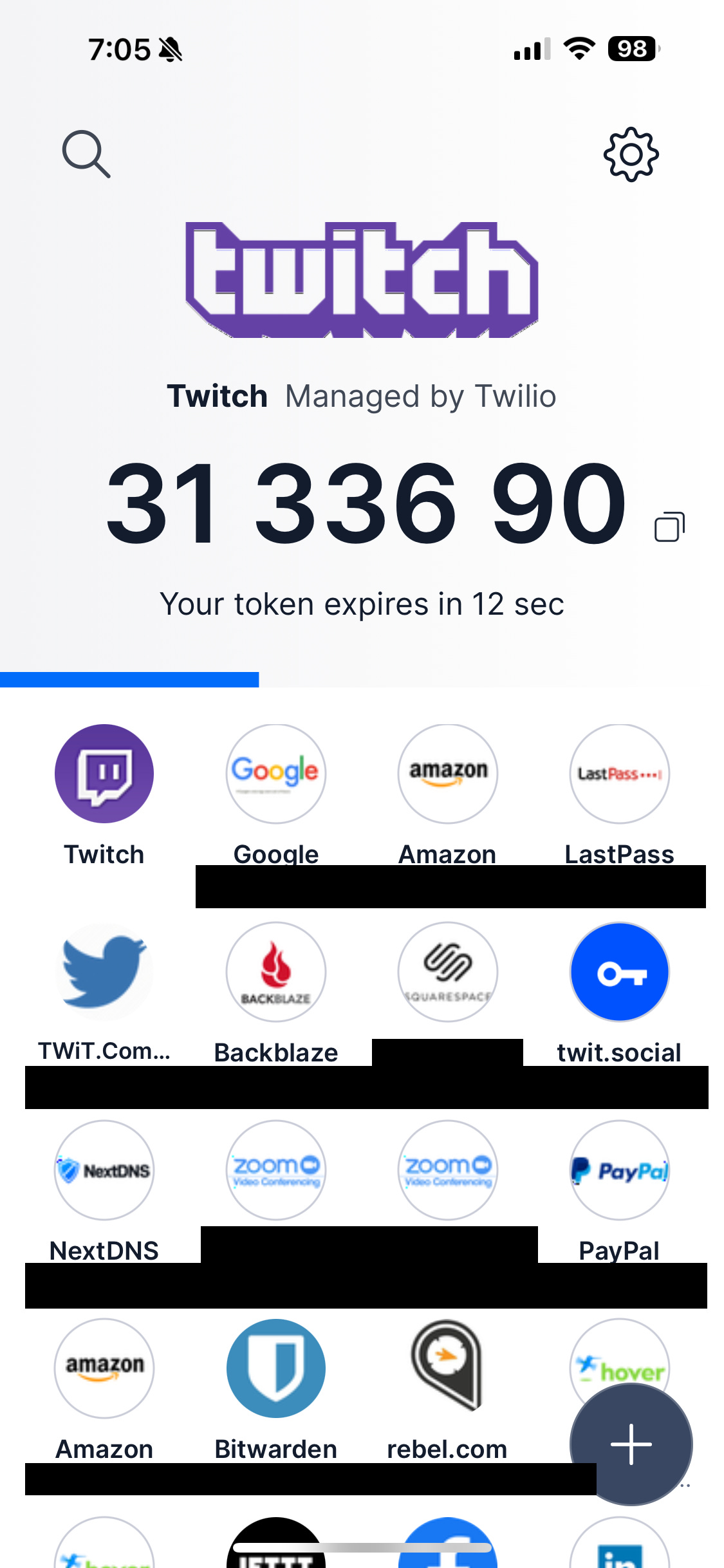Proton Authenticator: Import, Export, and Sync Your 2FA Codes Without the Hassle
This is the only major 2FA app that lets you import and export your codes. Here’s what you get for free and what requires a paid Proton account, and why I switched immediately.
Until now, authenticator apps haven’t allowed you to move your 2FA codes without starting over. This means logging into each account, disabling two-factor authentication (2FA), and setting it up again in the new app. No one wants to do that potentially for dozens of accounts, and it even deters many people from using app-based 2FA out of fear of losing those codes.
Proton Authenticator is brand new, and changes that by letting you import and export your codes so you’re not locked in. It’s open-source, ad-free, and works across iOS, Android, Windows, macOS, and Linux.
The free version covers all the essentials, including sync across multiple devices, while a paid Proton account adds encrypted cross-device sync as far as I understand it.
On his Rich on Tech radio show, Rich DeMuro said: “There is a new two-factor authentication code app that I just absolutely have fallen in love with… It’s open source. It’s ad-free. It does not lock you in, which I love. You can import or export your two-factor authentication codes.”
This post breaks down exactly what you get for free, what’s paid, how it compares to Authy, and why I decided to switch. If I get anything wrong here, please contact me I’ll be happy to correct it. Again, it’s a brand new app.
Authy Comparison
Authy also offers end-to-end encrypted cross-device sync if you enable encrypted backups with a password you control.
However, Authy is closed-source, requires a phone number to register, and lacks an export option, meaning you’re locked in once you start using it, unless you manually reset 2FA for every account.
It’s also now mobile-only, with desktop support removed in mid-2024.
Proton Authenticator avoids these limitations: no phone number is required, it’s fully open-source, has desktop apps for all major platforms, and allows you to import or export codes freely. For me, that flexibility alone is a huge reason to switch.
Free Features
According to Proton, “Proton Authenticator is an open source and end-to-end encrypted 2FA app that’s simple and free to use. It is available on all platforms.” You can install it on iOS, Android, Windows, Mac, and Linux, and use all of these features without paying, though you will need a free Proton account.
Import and export your 2FA codes so you can migrate without starting over
Generate codes offline every 30 seconds, even without an internet connection (sync at initial setup which DOES require an internet connection)
Keep the codes local to your devices
Lock the app with Face ID, fingerprint, or a PIN
100% ad-free and tracker-free
Paid Features
To sync codes between devices with end-to-end encryption, you must sign in with a Proton account. I’m not certain on that, but that’s what I think I’m understanding.
The app itself notes: “a Proton account is required to enable end-to-end encrypted sync between devices” (Proton Authenticator in-app message).
Here is the pricing for Proton. A monthly option is also available.
Rich also praised the flexibility in how you store and sync.
“You can sync your codes across devices or you can keep them local. You can back them up to your own cloud like Proton Cloud or iCloud, or you can use their own cloud to sync them across.”
Never Set Up 2FA Codes Again
Like Rich, I’m falling in love with this app. I immediately started going through my accounts, logging in, disabling old app-based 2FA, and setting them up again in Proton Authenticator. That’s not a quick or simple process, but the thought of possibly never needing to do it again makes it worth it.
Closing Thoughts
If you just want a private, open-source, ad-free authenticator that works everywhere and doesn’t lock you in, Proton Authenticator’s free features are enough.
If you value secure, encrypted cross-device sync, the Proton Pass Plus or Unlimited plan adds it, and knowing you can migrate your 2FA codes without starting from scratch is reason enough for me to make the switch. Compared to Authy, Proton offers more transparency, easier migration, and better long-term flexibility.



